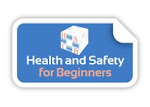Police bravery will not be punished under health and safety law
Police officers who undertake heroic acts in the course of their operational duties will not be prosecuted for health and safety breaches by the HSE, according to new guidance released by the regulator today (7 July).
The explanatory note – issued on the sixth anniversary of the 7/7 terrorist attacks in London, and in advance of the Police Bravery Awards, which take place in Harrogate tonight – supports the HSE’s position statement on how health and safety law is applied to the Police (Striking the balance between operational policing and health and safety duties, launched in October 2009).
In it, the regulator acknowledges “the reality that individual police officers and/or other staff may decide to put themselves at significant risk by carrying out a heroic act in the course of their duty”. In such instances, the HSE says it will not investigate the individual, or take any enforcement action against them. It also pledges not to judge informed decision-making by commanding officers in the event of a serious incident “with the benefit of hindsight”.
Similar guidance on heroic acts by individual fire-fighters was contained in the Striking the balance document for the Fire Service published by the HSE in April this year.
The note is primarily intended for Police services and HSE inspectors, and explains the principles of the Striking the balance statement, clarifies the terminology used in it, and contains a range of case studies of how policing can be delivered without compromising the health and safety of police officers, staff, and the public.
In the wake of a number of incidents widely reported by the national media as evidence that health and safety is preventing the police from intervening in situations to save lives, the HSE has made it clear that while the special nature of operational policing may require certain risks to be taken, those risks must still be minimised as far as reasonably practicable.
As the employer of individual officers this is the duty of the Police Service, which the HSE expects to identify the types of risks its staff may face, put in place all reasonable steps to minimise those risks, ensure their staff are aware of and follow their force’s guidance and policies, and provide appropriate training for staff who need to take risk-benefit decisions in the course of operational policing.
On the subject of training in particular, the HSE recognises that “not every officer can be trained for every scenario” but points out that they can be equipped with the skills relevant to their rank “to make appropriate risk-benefit decisions, dynamically assess the situation, and make the best possible decision” based on the information to hand, the threat involved, and the resources and equipment available.
As for those with supervisory and command responsibility, the note makes it clear that they must consider “the balance between the risk of the operation and the benefit to the public that may be achieved by undertaking it”. With regard to the decisions they make, the HSE says it will not judge operational advice given by supervisors to officers, but the force will be judged on whether it had taken all reasonable precautions to ensure the safety of officers, given the circumstances.It also acknowledges that individual officers may disregard this advice “in light of a changing situation and/or in the interests of the public”.
The Association of Chief Police Officers, which worked closely with the HSE on the original guidance, welcomed the explanatory note, adding that is “firmly of the view that officers making decisions of their own accord shouldn’t be at risk of prosecution”.
The explanatory note is available on the HSE website.


